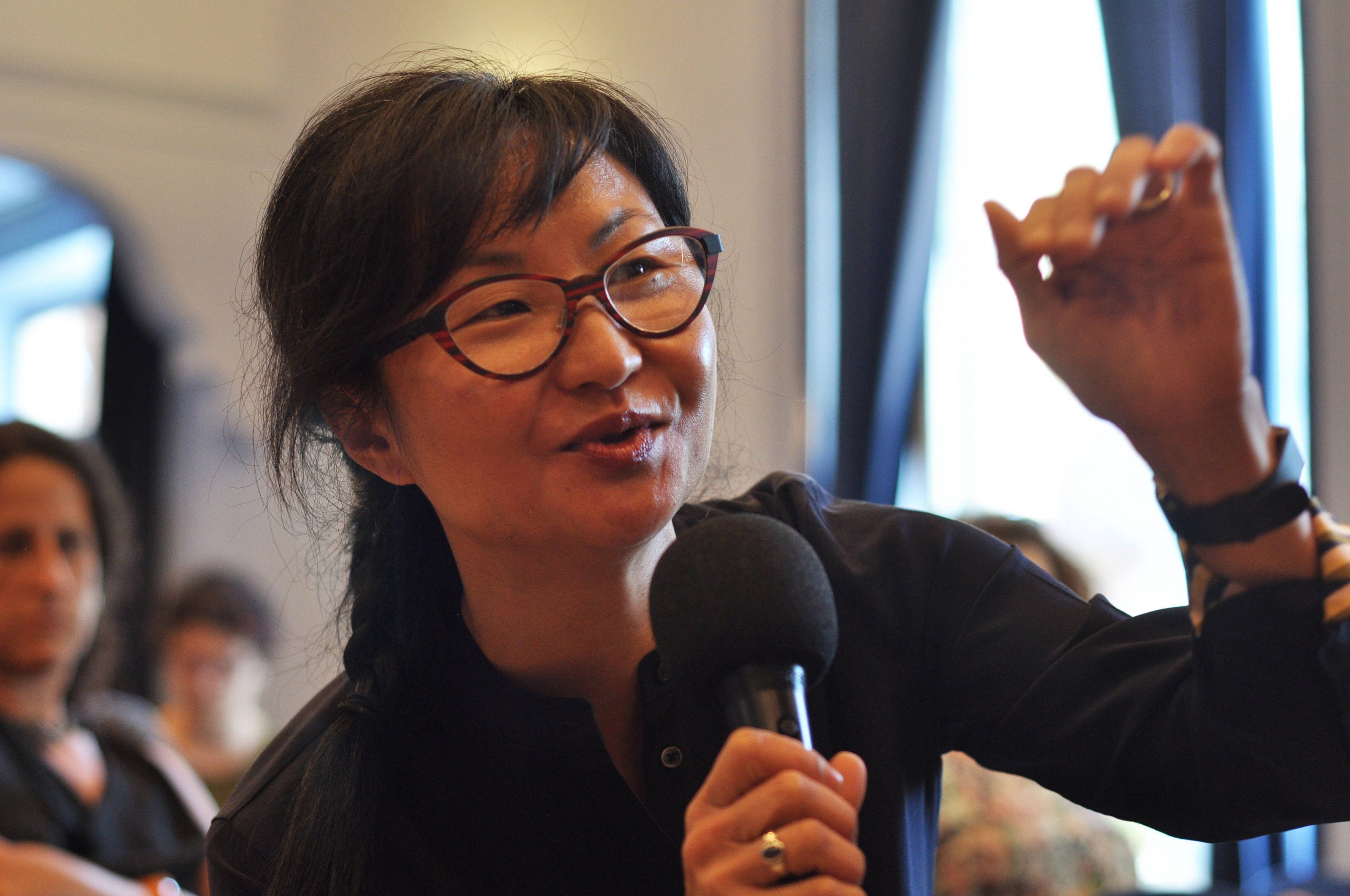CSREA’s Equilibrium Discussion Series invites speakers to consider topics like algorithmic bias, the built environment, and medical science through the lens of race and ethnicity, with an eye toward possibilities for creating a more just world.
In Discriminating Data: Correlation, Neighborhoods, and the New Politics of Recognition, Wendy Hui Kyong Chun, Chair & Professor of New Media at the School of Communication, Simon Fraser University, reveals how polarization is a goal—not an error—within big data and machine learning. These methods, she argues, encode segregation, eugenics, and identity politics through their default assumptions and conditions.
This event is presented in-person and virtually via Zoom. No matter how you choose to join us, please register to attend.
About the Book
In Discriminating Data, Wendy Hui Kyong Chun reveals how polarization is a goal—not an error—within big data and machine learning. These methods, she argues, encode segregation, eugenics, and identity politics through their default assumptions and conditions. Correlation, which grounds big data's predictive potential, stems from twentieth-century eugenic attempts to “breed” a better future. Recommender systems foster angry clusters of sameness through homophily. Users are “trained” to become authentically predictable via a politics and technology of recognition. Machine learning and data analytics thus seek to disrupt the future by making disruption impossible.
Chun, who has a background in systems design engineering as well as media studies and cultural theory, explains that although machine learning algorithms may not officially include race as a category, they embed whiteness as a default. Facial recognition technology, for example, relies on the faces of Hollywood celebrities and university undergraduates—groups not famous for their diversity. Homophily emerged as a concept to describe white U.S. resident attitudes to living in biracial yet segregated public housing. Predictive policing technology deploys models trained on studies of predominantly underserved neighborhoods. Trained on selected and often discriminatory or dirty data, these algorithms are only validated if they mirror this data. How can we release ourselves from the vice-like grip of discriminatory data? Chun calls for alternative algorithms, defaults, and interdisciplinary coalitions in order to desegregate networks and foster a more democratic big data.
About the Author
Wendy Hui Kyong Chun is Simon Fraser University’s Canada 150 Research Chair in New Media in the School of Communication and Director of the Digital Democracies Institute--a group of diverse scholars and stakeholders from around the world who collaborate across disciplines, schools, industry, and public sectors to research and create vibrant democratic technologies and cultures. She has studied both Systems Design Engineering and English Literature, which she combines and mutates in her research on digital media. She is the author many books, including: Control and Freedom: Power and Paranoia in the Age of Fiber Optics (MIT, 2006), Programmed Visions: Software and Memory (MIT 2011), Updating to Remain the Same: Habitual New Media (MIT 2016), and Discriminating Data: Correlation, Neighborhoods, and the New Politics of Recognition (2021, MIT Press). She has been Professor and Chair of the Department of Modern Culture and Media at Brown University, where she worked for almost two decades and is currently a Visiting Professor. She is a Fellow of the Royal Society of Canada, and has also held fellowships from: the Guggenheim, ACLS, American Academy of Berlin, Radcliffe Institute for Advanced Study at Harvard.
About the Moderator
Kim Gallon is an Associate Professor of Africana Studies. Her work investigates the cultural dimensions of the Black Press in the early twentieth century. Her first book, Pleasure in the News: African American Readership and Sexuality in the Black Press (University of Illinois Press, 2020) —argues that African American newspapers fostered Black sexual expression, agency, and identity in the first half of the twentieth century. Gallon is also the author of the field-defining article, “Making a Case for the Black Digital Humanities.” Her more recent work focuses on the spatial relationship between reading and residential segregation in Baltimore in the twentieth century. She is also working on a book project on race, digital technology, and health equity. Gallon is the founder and director of two black digital humanities projects, The Black Press Research Collective and COVID Black. Her work has been supported by the American Council of Learned Societies, National Endowment for the Humanities, Social Science Research Council and Spencer Foundation.

